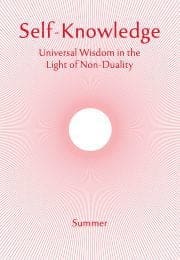Less Thought, More Light
The teachings on meditation point out the benefits of having a quiet mind. This doesn’t mean a dull mind or an uninformed mind. It means we have the power to create peace and tranquillity in our own mind whenever we wish to do so.
This instruction in tranquil self-control is common to all wisdom traditions. For example, it underpins the ‘practice of the presence’ of the Reality taught by the 17th century Christian teacher known as Brother Lawrence, when he warns us that ‘useless thoughts spoil all’, and that we ought to reject them as soon as we become aware of them. The Islamic sage, Jalaluddin Rumi, concludes one of his parables with the words: ‘Thought is gone, and we have gained light’, while the following lines by the Chinese poet-sage, Han Shan, are a typical Taoist expression of the same principle:
In my house there is a cave,
And in the cave is nothing at all.
Pure and wonderfully empty,
Resplendent, with a light like the sun....
The value of creating peace and tranquillity in our own mind cannot be overstated. This because our calmness will produce in us a refined self-awareness. In this self-awareness we will become sensitive to something in our own being—our I am— that is superior to our known powers and faculties. It is superior because it brings a new satisfaction.
In fact such an experience imparts a new meaning to the word ‘satisfaction’. This meaning is conveyed by the English word ‘bliss’. Bliss suggests an intensity of satisfaction which goes beyond experiences that are pleasurable. And yet the bliss revealed in the quiet mind is a tranquil bliss, without forceful outer expression or exuberance.
The important thing about this satisfaction or joy is that it springs from our own innermost being. It is self-bliss or self -joy, because it is the true nature of our I am. The foremost philosopher of non-duality, Shri Shankara, commenting on an ancient text, writes that those sages who have realised their ultimate nature are seen to be as happy as those people who have the means to great happiness in the world, even though they (the sages) may own nothing, make no efforts, and cherish no desires. There can be only one source for their happiness, and that is their self-knowledge.
Subscribe or enrol for free guest access to read all of this article and Self-Knowledge online.
Already subscribed or enrolled? Log in:


